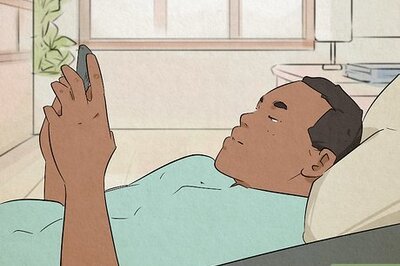
views
We have heard this before, but the point is being re-emphasized again. Cutting the time spent on social media platforms such as Facebook, Instagram and Snapchat will reduce the feelings of depression and loneliness. That is according to the newest research published by the University of Pennsylvania. The study titled “No More FOMO: Limiting Social Media Decreases Loneliness and Depression, ” is based on researchers observations of 143 undergraduate students, over a period of three weeks.
As a part of the research, the students were randomly split into two groups. The first group was asked to limit social media usage on Facebook, Instagram and Snapchat to 10 minutes on each platform per day. Students were then asked to send researchers screenshots of the battery usage statistics on their iPhones, which shows how many minutes are spent on each app each day, to accurately track the usage of the social media apps. Post this, they were asked to fill up a survey which determined their mood. The second group could carry on with using social media apps as usual. Researchers noted that reducing the time spent on social media apps significantly reduced the depressive symptoms in the group that saw time limits set for Facebook, Instagram and Snapchat.
“It is a little ironic that reducing your use of social media actually makes you feel less lonely. Some of the existing literature on social media suggests there’s an enormous amount of social comparison that happens. When you look at other people’s lives, particularly on Instagram, it’s easy to conclude that everyone else’s life is cooler or better than yours,” says Melissa G. Hunt, associate director of clinical training in Penn’s Psychology Department, in the study. One of the reasons for the perceived increase in depression and stress levels after extensive social media usage is because of the content that you see there—people tend to show off a rather fancy, luxurious and glamorous lifestyle on social media. This leads to instances of comparison with one’s own real world lifestyle.
The study and the researchers stress that the idea is to not completely turn off social media, but to limit the time spent on it. The “No More FOMO: Limiting Social Media Decreases Loneliness and Depression” study only looks at Facebook, Instagram and Snapchat to determine human reactions to the content consumed there, and it isn’t clear if the same guidance would apply to other social media networks such as Twitter, for instance.



















Comments
0 comment